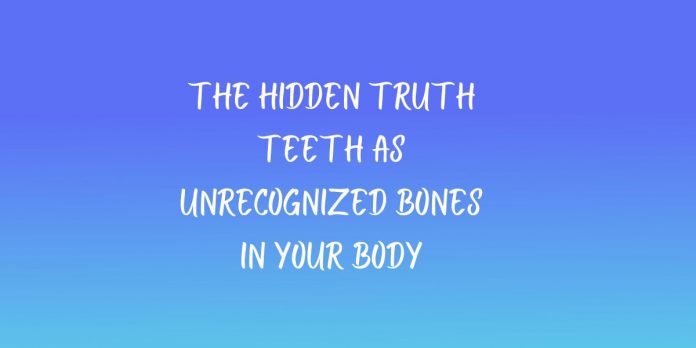Teeth, often overlooked in discussions about bones, are an integral part of our skeletal system. While they may not be considered traditional bones, they share intriguing similarities, raising questions about their classification. This article delves into the hidden truth behind teeth, exploring their structure, functionality, and the significant role they play in our overall well-being.
Teeth Structure and Composition
Teeth, like bones, are composed of minerals, primarily calcium and phosphorus. This composition lends them strength and durability, making them functionally similar to bones. Understanding dental anatomy is crucial to recognizing this similarity, as teeth consist of enamel, dentin, and pulp, mirroring the layered structure of bones.
Functionality of Teeth Beyond Chewing
Beyond their primary role in chewing, teeth contribute to speech and provide essential support to facial structures. The intricate design of teeth allows for the production of various sounds crucial for effective communication. Additionally, the support teeth provide to facial muscles influences our overall facial appearance.
Teeth Development
Teeth undergo a fascinating developmental process, beginning in early childhood with the eruption of deciduous teeth. This process continues into adulthood with the replacement of baby teeth by permanent ones. Understanding the stages of teeth development sheds light on their unique characteristics.
Common Misconceptions
Despite their similarities with traditional bones, teeth are often viewed separately. Dispelling common misconceptions regarding the distinction between teeth and bones is essential. Recognizing the interconnectedness of dental health and overall well-being challenges prevailing beliefs.
Teeth and Bone Diseases
Surprisingly, there is a link between teeth and bone diseases such as osteoporosis. The health of our teeth can serve as an indicator of our skeletal health, emphasizing the need for comprehensive healthcare strategies. This section explores the intricate connection between dental and bone health.
Perplexity of Tooth Sensitivity
Understanding tooth sensitivity involves unraveling the intricate nerve connections within teeth. Delving into the perplexity of tooth sensitivity provides insights into its causes and effective management, enhancing our overall oral health.
Burstiness of Tooth Regeneration
While teeth have limited regenerative abilities compared to traditional bones, advancements in regenerative dentistry offer hope for the future. Exploring the burstiness of tooth regeneration sheds light on innovative treatments and potential breakthroughs in dental care.
Teeth and Aging
As we age, our teeth undergo changes that impact their functionality and appearance. Recognizing these changes is crucial for adapting oral care practices to address the specific needs of the elderly, promoting dental health in later stages of life.
Signs of Unhealthy Teeth
Identifying signs of unhealthy teeth, such as cavities and gum diseases, is vital for timely intervention. This section outlines common indicators of dental issues and emphasizes the importance of proactive dental care.
Maintaining Dental Health
Maintaining optimal dental health involves more than regular brushing. Proper oral hygiene practices and routine dental check-ups play a pivotal role in preventing dental issues and ensuring long-term oral well-being.
The Psychological Aspect of Teeth
Beyond their physical function, teeth have a significant psychological impact. Their appearance influences self-esteem, and the growing field of cosmetic dentistry addresses not only functional but also aesthetic aspects of dental health.
Dietary Influence on Teeth Health
Our dietary choices directly impact teeth health, especially concerning calcium intake. Exploring the role of calcium and identifying foods that promote dental health contribute to a holistic approach to oral care. Mangalallot Magic
The Future of Dental Care
Technological advancements and innovative treatments are shaping the future of dental care. From digital dentistry to regenerative therapies, this section explores the exciting developments that promise to revolutionize how we approach dental health.
Conclusion
Recognizing teeth as unrecognized bones challenge preconceived notions about our skeletal system. Their unique composition, functionality, and connection to overall health underscore the importance of comprehensive dental care. By understanding the hidden truth behind teeth, we pave the way for a more integrated approach to healthcare that prioritizes both traditional bones and their less acknowledged counterparts.

